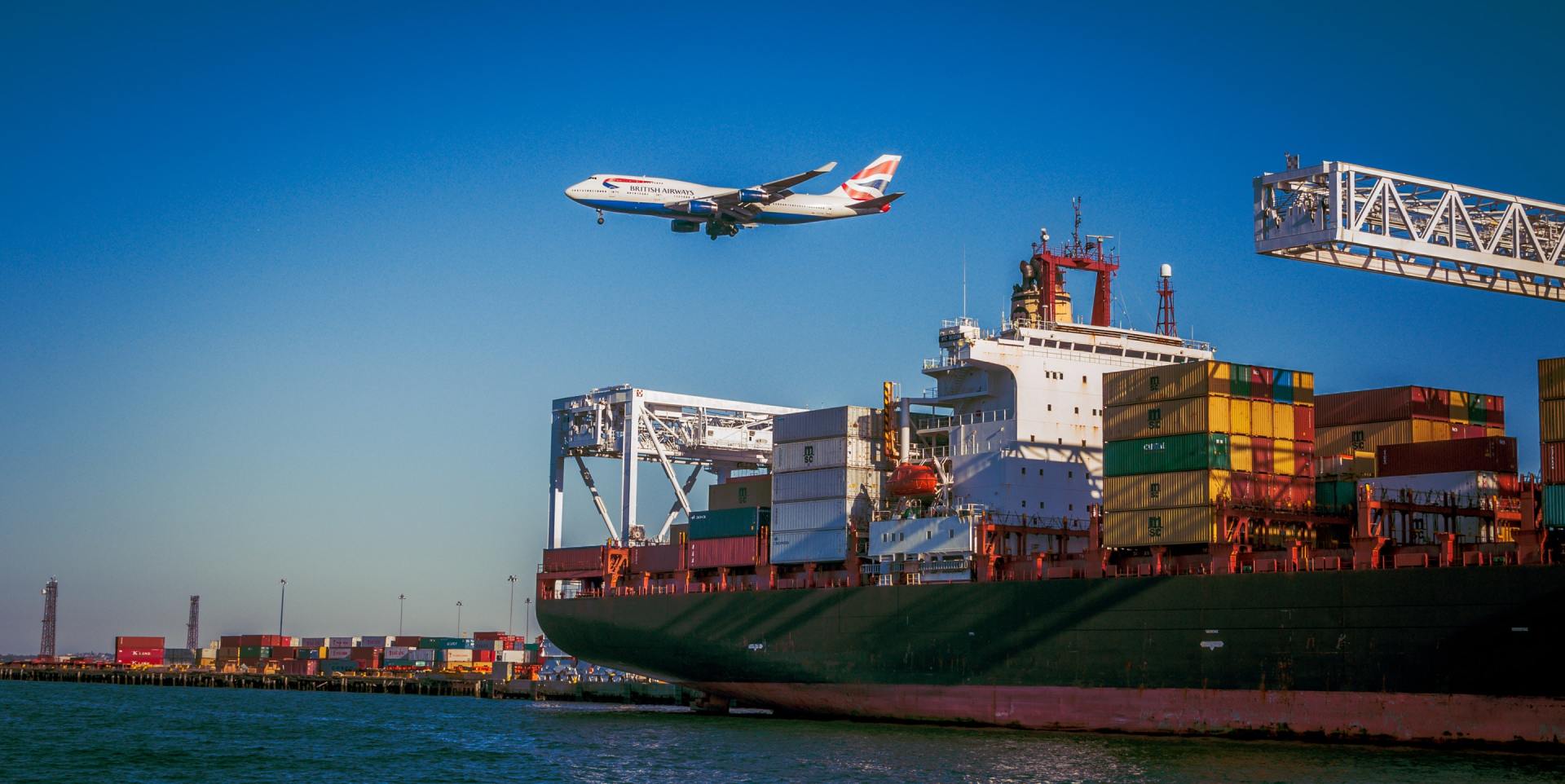Find out how much it will cost
How to find the cheapest air freight services
When you're shipping products internationally, air freight costs can quickly increase. However, there are ways to find the cheapest air freight possible. Understanding your options and targeting suitable carriers can save significant money on your next shipment.
Here are some tips for finding the cheapest air freight for your business.
What are Air Freight Services?
When you ship goods by air it's known as air freight. Air freight is usually used for urgent deliveries and high-value items. It's also often used for dangerous goods and things that need special handling. Restrictions do exist on what can and can't be shipped using air cargo. Sea freight is generally less expensive than sea freight, and it's not always possible to ship certain types of cargo using air freight.
Air Freight Services Delivery Options
There are several different options for arranging an air freight delivery.
- Consolidated freight – Consols – where one shipment contains many flights.
- Direct services - here, a single shipment is shipped directly from one location to another without any intermediate stops
- Chartering an entire plane for a single delivery is expensive, but it's done occasionally. These shipments might be shipped by air in passenger planes or dedicated freighter planes that can accommodate large amounts of air cargo on one trip.
Air freight has several advantages.
Shipping your products by air has some great advantages. Some of them are:
- Air freight can be fast – primarily if you use an express service, your shipment can arrive in days, whereas sea freight takes weeks.
- Air cargo delivery charges and air freight rates are calculated based on weight rather than size. So, larger packages cost less per unit of weight than smaller ones.
- Air freight carriers will be able to offer you a few different options when it comes to arranging your air freight delivery.
- Air freight is often the best option when moving something quickly and cheaply. However, it is essential to ensure your product arrives undamaged. If you're shipping delicate items, you may consider using a specialised packing service.
- Air freight is tracked much like passengers on an aeroplane – security is tight.
- Shipping goods by air is considered more environmentally friendly than shipping goods by ship.
What are the disadvantages of air freight?
Whether or not air freight works for your shipment depends on precisely what you're shipping and where. Here are some potential downsides you might want to consider before starting.
- Air freight rates are much more expensive than sea freight – both for the delivery and import duties and VAT, which are calculated at a fixed rate.
- If you're using a consolidated freight shipment, you'll have to wait until the plane is full before it is shipped. That means it could take a few days, depending on when the next flight is scheduled.
- Air freight costs are more expensive than ocean freight, and there are strict regulations about what you can move by air. For example, if you're moving a car, you need a special permit. If you're moving a piano, you need a special license. And if you're moving an animal, you need a special certificate.
What can you expect to pay for air freight door-to-door service?
The prices of air freight shipping services are usually based on the weight or volume of goods shipped. If you're shipping something particularly large or oddly shaped, however, this could incur additional fees, increasing air freight prices. Consolidating shipments through a single carrier is usually the cheapest option, but it may take a few days longer.
The best air freight cost is given for goods that fit the standard size unit load devices –
ULDs go into the front part of the hold of a plane, which usually measures around 307cm long, x213cm wide x 193cm high.
How to find the cheapest air freight services
Air cargo prices vary significantly depending on what you're moving to and where. You'll get a good idea of what the range of costs is from different providers using an air freight calculator.
When you're calculating the cost of shipping an item, you'll need to consider the following:
- Cost of goods
- Cost of delivery
- Products imported into the UK incur import duties, usually calculated as a percentage of the total cost of goods plus the delivery cost for the door-to-door service.
- UK VAT – calculated at 20% of the total cost of goods plus the cost of delivery plus the cost of import duty
- Import duties and VAT are calculated as percentages of the total cost of goods + the total cost of delivery. So if you buy an item online, you will pay more tax and duty when you import it by air than by sea. This is because the government charges a higher tax and duty rate on imported goods than on domestic goods.
How air freight works
Most air cargo is arranged by experienced freight forwarders. These companies will usually handle all aspects of international shipping, including customs clearance, insurance, and delivery. They may also offer other services like courier services and sea freight.
Here are the general things you'll need to do to arrange for your goods to be shipped by air freight:
- Choose an air freight forwarder, and agree on a price with them for their service.
- The freight forwarder collects the goods from your supplier. Either they'll be ready for transport (RFT), or the forwarder will pack them up.
- Your goods are taken by air to the destination country and must clear customs at entry.
- Goods arrive at the airport, ready to go. In the case of consolidated shipments, this could take several days.
- When arriving in the UK, the products must go through customs again and will only be released once all duties and taxes are paid.
- Goods are delivered to you as agreed by the freight forwarder.
How long does air freight take?
Air freight can usually take days compared to weeks if you decide to ship by sea. For best results it's important to use the services of a freight forwarder. Freight forwarders are companies that specialise in shipping cargo around the world. They provide services like customs clearance, insurance, and other logistics-related services. Freight forwarders are not necessarily associated with any particular country. Some of them operate internationally, while others focus on specific regions.
What to do if you can't use Air Freight
If your products can't be shipped by air freight, you may want to consider sending them by sea freight instead. Products shipped have far fewer restrictions; although all items must be declared appropriately and labelled, the importer must have the proper licenses if necessary, and the goods must be packed and transported safely.
Air freight quote
There are usually two options when you want something shipped overseas. You can go through a freight forwarder or an online quotation tool to get a range of prices from multiple carriers. If you're shipping a large number of goods, then you might want to consider using a freight forwarder. These companies will handle all the logistics of getting your goods to their destination safely and efficiently. However, if you need to send a small package, you can probably save money by going directly to the carrier.
Air freight tracking
Air freight shipments travel via airliners, cargo planes, helicopters, and other aircraft. It is tracked electronically throughout its journey. You can track your shipment online and even get updates on when it will arrive at its final destination. Security is tight, and safety inspections are thorough on cargo precisely as they would be with passengers. After all, your goods could be shipped in the belly section of a regular passenger plane, and you wouldn't want anything wrong happening to them.
Summary
Air freight can be an excellent choice for high-value or urgent deliveries. Speak to specialist freight forwarders to help decide if air freight shipments are the best route for your business.


